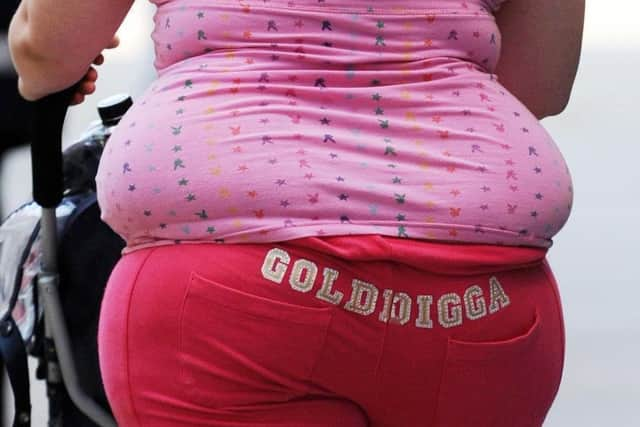Fat chance of a healthy UK as millennials turn obese


When it comes to obesity the UK’s figures make for alarming reading.
Britain is the most obese nation in Western Europe, with rates rising faster than in any other developed nation.
Advertisement
Hide AdAdvertisement
Hide AdNow, based on research of population trends, it’s emerged that more than seven in every 10 people born between the early 1980s and mid-90s will be too fat by the time they reach middle age.


Compare this with about half of the “baby boomer” generation, born just after the Second World War, who were obese or overweight at that age and the scale of the problem becomes evident.
Cancer Research UK, which did the analysis, has warned that being fat is linked to 13 different types of cancer and wants to make the associated health risks clear to the public.
Paul Gately, professor of exercise and obesity at Leeds Beckett University, says health experts have been warning about this issue for decades.
Advertisement
Hide AdAdvertisement
Hide Ad“Obesity has been an issue across all age groups for 20 or 30 years. We’ve known this problem has been coming but we just haven’t really done anything about it.”


Prof Gately, who set up Leeds-based weight management company MoreLife, says people who are overweight or obese are looked down upon. “There’s a stigma surrounding obesity. It’s seen as an individual’s choice and therefore it’s not our responsibility.”
He says the Government is happy to tax food companies but doesn’t want to deal with the consequences of obesity, which he says doesn’t make sense. “Obesity is a normal response to an abnormal environment. We’re designed as a species to hunt and gather and now we don’t have to do that anymore. You can use your phone to get a pizza delivered to your door and in relative terms it’s pretty cheap.”
Advances in technology and an abundance of food has also meant we lead easier, but also more sedentary, lives. “One of the consequences of this is obesity and we’ve not yet grappled with it effectively,” says Prof Gately.
Advertisement
Hide AdAdvertisement
Hide Ad“Cancer UK has tried to communicate this message, which is critically important. Unfortunately we don’t treat people with cancer the same way we treat people who are obese. We have a great deal of empathy, which is quite right, for people with cancer but if someone is obese it’s seen as their own fault.”
He believes attitudes towards food and exercise need to become more aligned with some of our European cousins. “Places like Amsterdam and Copenhagen have a very strong cycling culture. London’s starting to make that happen but I don’t see it in West Yorkshire..”
However, creating this cultural sea-change takes time. “In Amsterdam kids didn’t suddenly get on their bikes, it’s taken 40 or 50 years to change the culture. So in Britain’s going to be a battle to overcome this challenge.”
Prof Gately wants to see greater recognition and understanding in this country of the health risks caused by obesity. “There are good things going on like the ‘sugar tax’ and there are food companies and supermarkets trying to reformulate food to try and address the issue, but it’s not enough.”
Advertisement
Hide AdAdvertisement
Hide AdHe warns that if more funding and support isn’t found for programmes and initiatives that help tackle the problem then it could have a devastating effect. “Obesity will bankrupt the NHS... our taxes are paying for the consequences whether we like it or not,” he says.
“We need to accept it’s an issue and we need to invest in things that help people who are overweight or obese so they can take ownership.
“We need to enable kids to cycle to school without parents worrying about their safety and we need to be committed to doing all this – not writing reports every six month that keep saying it’s a problem.”